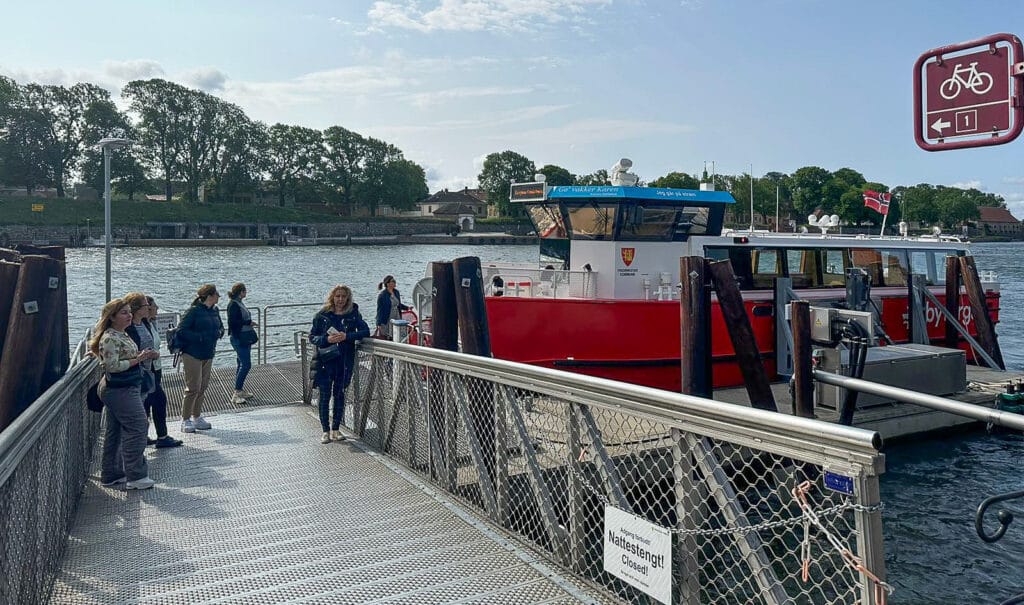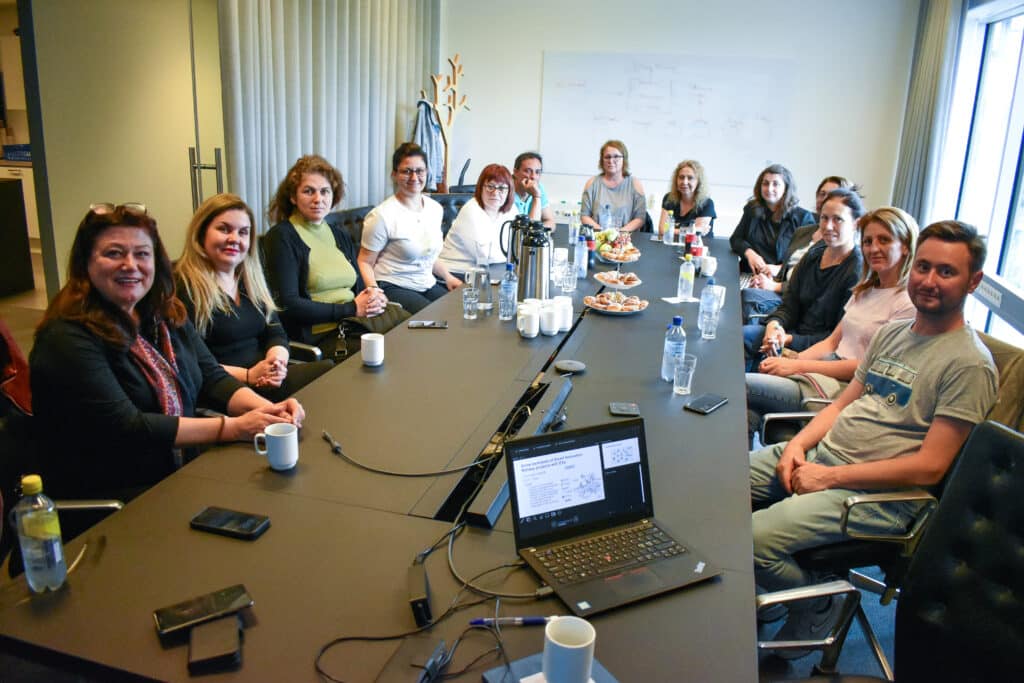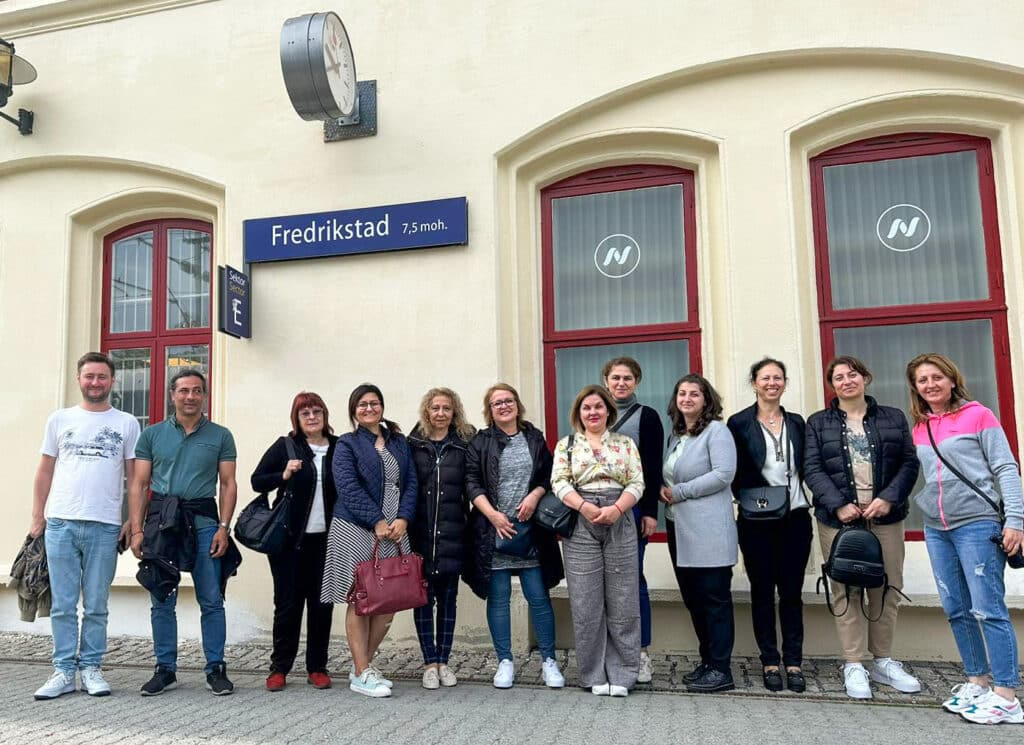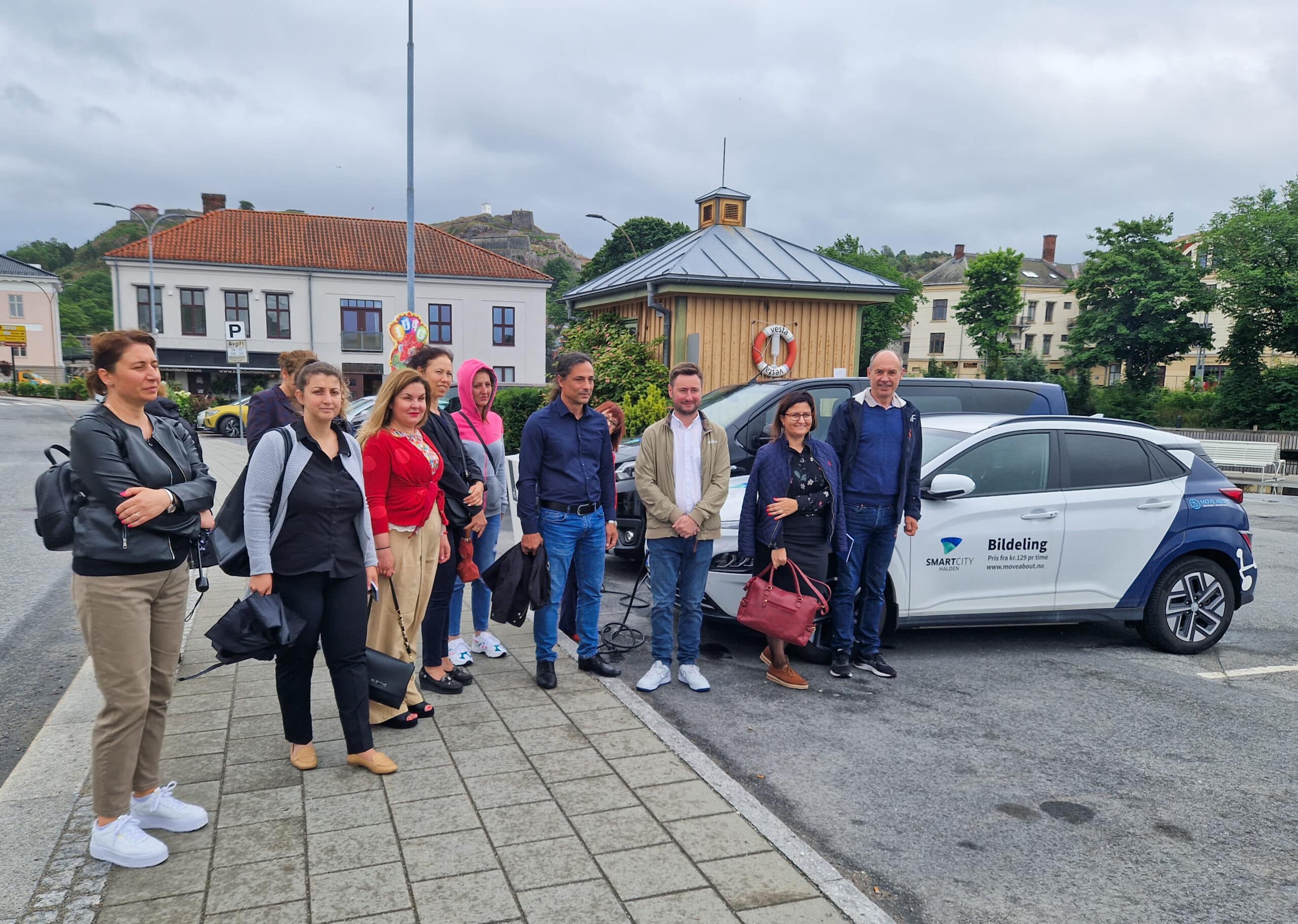12 representatives from six Bulgarian municipalities visited the cities of Halden and Fredrikstad to see and learn how to adapt to the changing climate and reduce emissions by implementing innovative measures in the transport sector and increasing the capacity of their municipal employees.
As they are at the beginning of developing their local green policy, attendance in the Black Sea E-mobility project is crucial and useful to the six participating Bulgarian municipalities of Kavarna, Byala, Dalgopol, Dolni Chiflik, Nessebar and Primorsko.
External partners are the Union of Bulgarian Black Sea Local Authorities (UBBSLA) and Smart Innovation Norway.
EVs and charging stations
During 13 months, the six small size municipalities will establish the Black Sea Corridor for E-mobility by purchasing one electric car (EV) and installing one EV charging station each. Such a pilot measure will stimulate the use of electric vehicles by the local population and allow Bulgarian and foreign tourists to travel along the entire Bulgarian Black Sea coast or transit with EVs.
Solar panels will enable the autonomy of the charging stations and the possibility of using green energy.
In addition to these physical and visible actions, the project focuses on increasing the partner municipalities’ capacity to evaluate their strategic and planning documents regarding designed and implemented activities leading to reducing greenhouse gas (GHG) emissions and climate change mitigation.
Rentable EVs and ferries free of charge

To obtain some of the essential project objectives, 12 municipal employees conducted a study visit to Norway and the municipalities of Halden and Fredrikstad, located in the southern part of Viken County.
For three days, the delegation from Bulgaria experienced and learned about established current ecological and innovative practices both on land and water, and they got presented achieved benefits and results of applied concrete measures for mitigation and adaptation to climate change in the field of transport at the local level.
Halden’s Smart City solution includes several EVs available to municipal employees during working hours and to the citizens after 4 PM and on the weekends.
In Fredrikstad, electric and free-of-charge ferries are a part of public transportation. They sail on the river Glomma and connect several areas of the city. From 2012 until 2019, the number of passengers increased from 350.000 to almost 1,5 million people.
Green destinations

One of the delegates from Bulgaria, Mrs Galina Babeva, points out how important it is for their further work in Bulgaria to experience and test successful initiatives like the EVs in Halden and EFs in Fredrikstad.
– Our mission is to turn the municipalities into good green destinations. It is a way of increasing prosperity and ensuring sustainable tourism. Being here in Norway gives us a lot of inspiration, she says.
Mrs Babeva is the Director of the EU Funds and Ecology Project Management Directorate in the Municipality of Nessebar.
– As climate changes are a huge challenge for us, EVs and electric charging will considerably impact pollution and the environmental status of our ecosystem, she says.
Tourism – a prioritised industry
After Bulgaria became a member of the European Union in 2007, the number of international tourists travelling to many of the cities on the 378 km long Black Sea coast has increased. In May, June, and July 2021, 2,2 million tourists visited the coastal municipalities, according to the Minister of Tourism.
Nessebar is the largest tourism coastal municipality, and tourism is a promising and growing sector. Thus, national and local authorities prioritise this industry.
About the partners

External partners of the project BGENVIRONMENT-4.004-0010 “Black Sea E-mobility” with the financial support of the Program “Environmental Protection and Climate Change” of the Financial Mechanism (FM) of the European Economic Area (EEA) 2014-2021, are the Union of Bulgarian Black Sea Local Authorities (UBBSLA) and Smart Innovation Norway.
The EEA Grants are funded by Iceland, Liechtenstein, and Norway, aiming to contribute to a more equal Europe, both socially and economically – and to strengthen the relations between Iceland, Liechtenstein, and Norway, and the 15 Beneficiary States in Europe, including Bulgaria.
Smart Innovation Norway is among the leaders in Norway on EU research and has a specialised department working to create sustainable community development in cooperation with municipalities and other organisations.
Established in 1992, the Union of Bulgarian Black Sea Local Authorities (UBBSLA) is a non-profit organisation that unites 20 municipalities from the Bulgarian Black Sea coast located in three administrative regions of Burgas, Varna, and Dobrich. The Association supports the interests of all member municipalities and encourages strong and effective local self-government and active citizen participation in the Black Sea Region.

